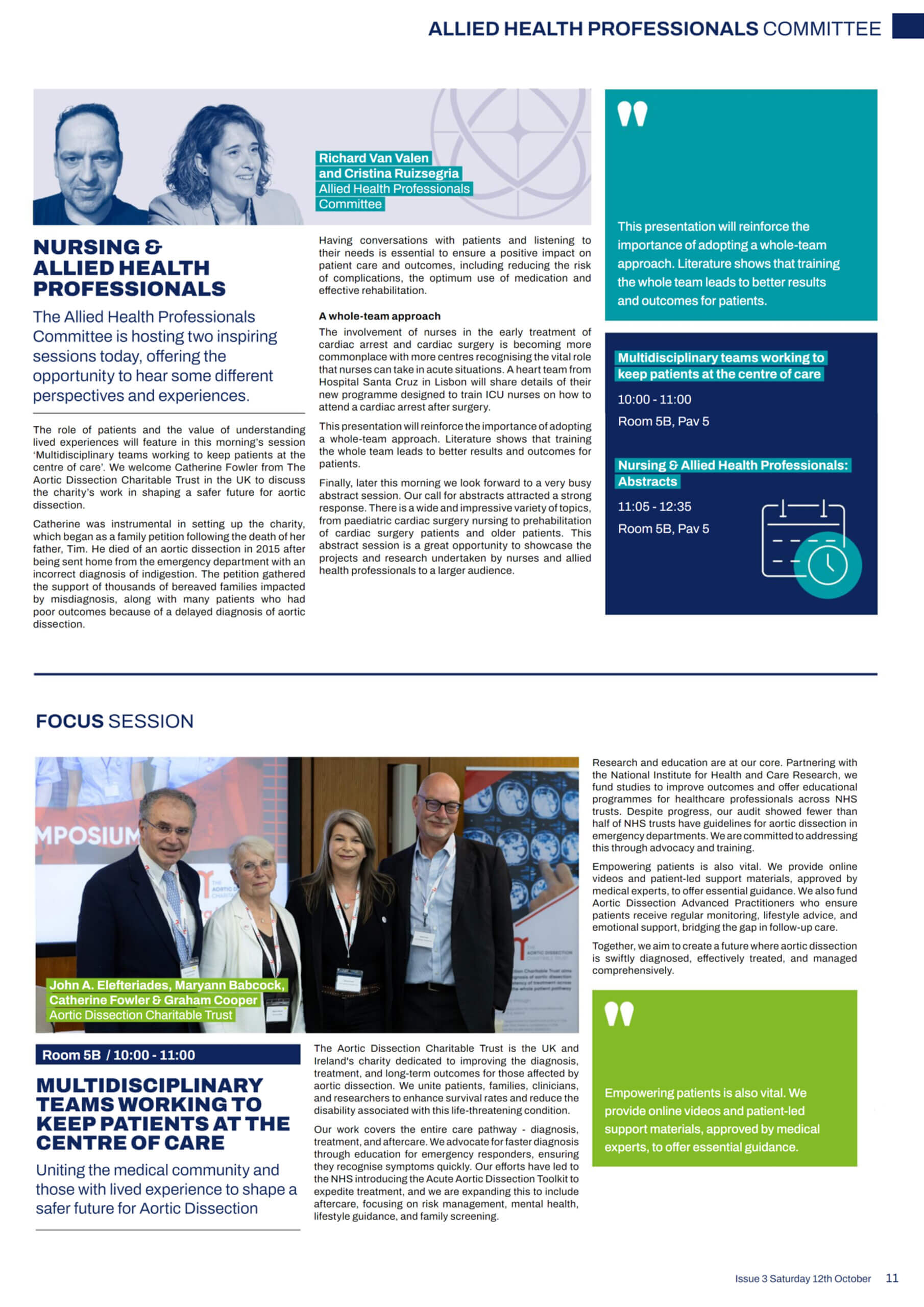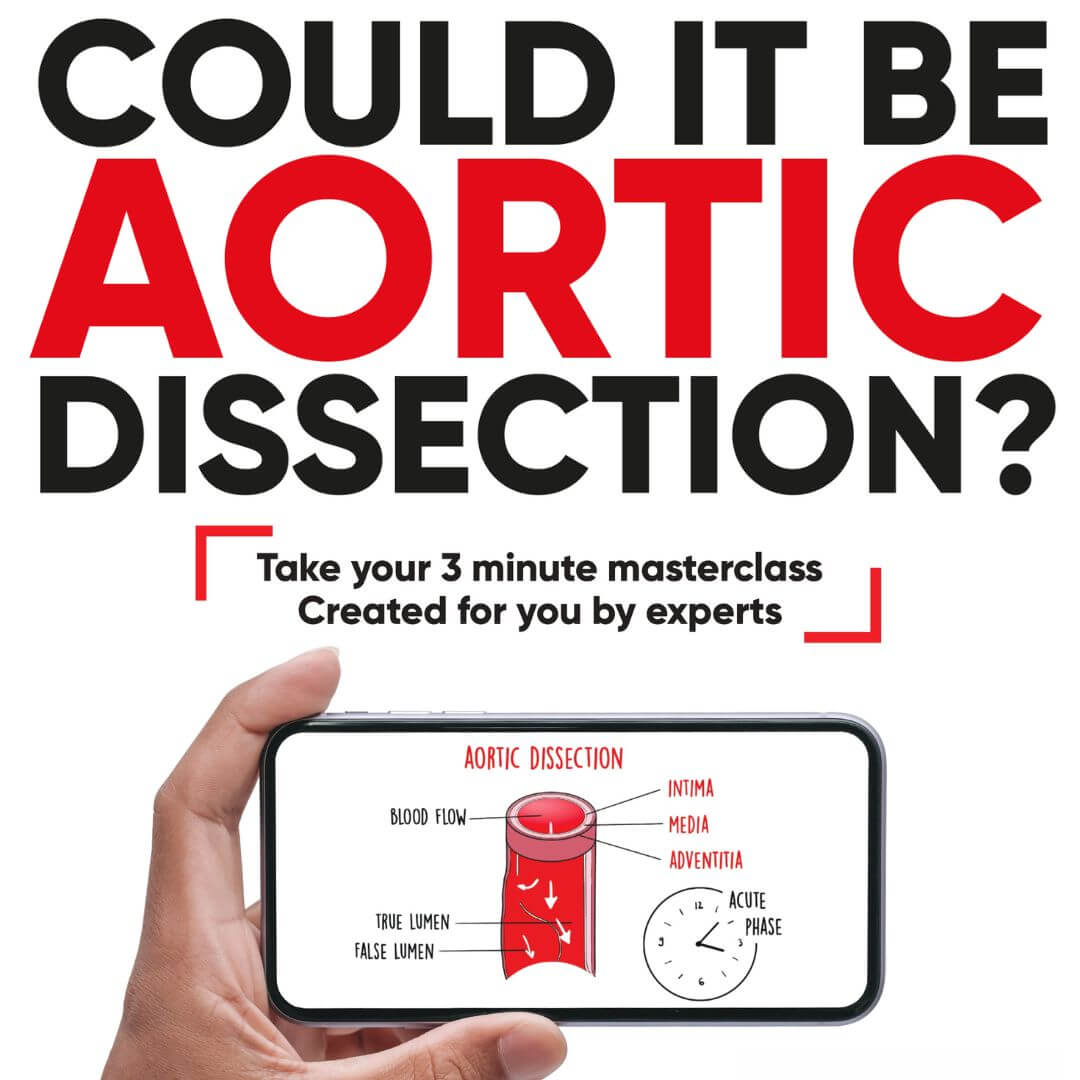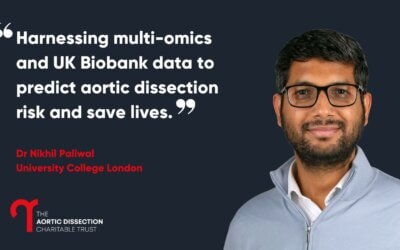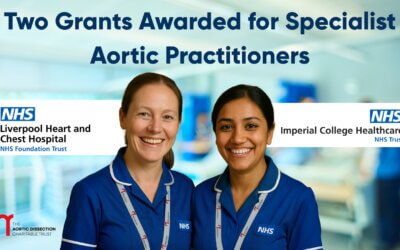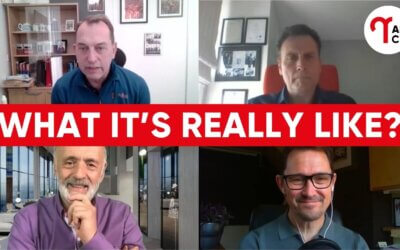At this year’s 38th EACTS Annual Meeting in Lisbon, The Aortic Dissection Charitable Trust led a compelling session that placed a vital focus on the patient’s role in shaping the future of aortic dissection care. Our presentations highlighted how collaboration between medical professionals and patients can significantly improve outcomes for those living with aortic disease.
Catherine Fowler, Trustee and campaigner, who tragically lost her father to an undiagnosed aortic dissection, spoke about how these partnerships can drive meaningful change.
“It’s about bringing people together – not just patients or bereaved relatives, but the entire professional community because we all want the same thing. When all those voices unite, the impact can be incredibly powerful.”
By incorporating patients’ experiences into medical practice, healthcare teams can better understand the real-world challenges of managing aortic dissection. This approach allows earlier identification of risks, leading to more timely and effective interventions. It also empowers patients to take an active role in their care, improving both their experience and overall outcomes.
Collaboration in Action
Cristina Ruiz Segria, EACTS Allied Health Professionals Committee member and nurse, highlighted the need for healthcare professionals to focus more on the patient’s perspective.
“When you’re a clinician, you often forget that the patient’s voice is essential. At the end of the day, you’re doing surgery, you’re caring for patients, but you need to listen. It’s not something done to the patient, but with the patient.”
This shift in thinking is already showing benefits, as evidenced by Bob Harris, BBC broadcaster and a survivor of aortic dissection. He shared his personal journey of recovery, reflecting on the psychological and emotional challenges that often go unaddressed.
“The pain is beyond belief, and the sense of doom is overwhelming. Even five years later, the aftermath of the experience is still vivid in my mind.”
Bob’s story illustrates the importance of providing ongoing support, particularly in terms of mental health, for patients recovering from such a traumatic event. His experience also highlighted a gap in aftercare, where many patients feel isolated after being discharged from emergency care. This is an area TADCT is actively working to improve, advocating for dedicated aftercare services to support patients long after their initial treatment.
Towards a Global Solution
While the initiatives discussed are rooted in the UK, the charity’s work has attracted the attention of international healthcare professionals. There is a growing recognition that the collaborative, patient-centred approach championed by the charity could be implemented more widely.
“We’ve worked closely with Macmillan to see how their approach to cancer follow-up can be adapted for aortic dissection. We need to introduce similar standards, with effective resources that bring those policies to the patients and families who need them.”
TADCT’s work shows the potential for this model of care to extend beyond the UK, improving outcomes for patients globally. The charity’s efforts include the development of a business case to establish new standards of care for aortic dissection patients, ensuring they receive the follow-up and support necessary for long-term recovery.
Building a Future of Better Care
The discussions at EACTS 2024 have reinforced the value of including patients as active participants in their care. Their insights offer a unique perspective that can lead to better diagnostic tools, more tailored treatment plans, and improved support systems. As Bob Harris noted:
“We’re hoping to create centres where patients like myself have somewhere to turn, especially at their moment of greatest need. That’s the kind of support system we’re working to build.”
As healthcare systems evolve, initiatives like these are essential for creating a future where aortic dissection patients receive comprehensive, compassionate care. The lessons from this year’s EACTS Annual Meeting point to a more inclusive model of healthcare, one that values the contributions of patients as much as the expertise of professionals.

